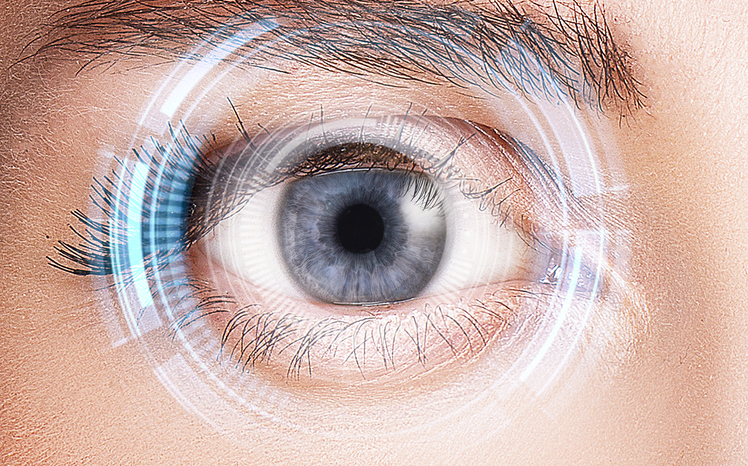Exploring the World of Refractive Surgeries: What You Need To Know for Improved Eyecare
In the realm of eye care, refractive surgeries have emerged as a prominent option for individuals looking for to deal with vision issues and reduce their dependence on glasses or contact lenses. As advancements in modern technology continue to refine these surgical techniques, staying notified about the newest growths and ideal practices in refractive surgeries comes to be critical for those considering this transformative journey towards much better eye wellness and vision.
Sorts Of Refractive Surgeries
Refractive surgical treatments encompass a selection of procedures aimed at correcting vision problems by reshaping the cornea or lens of the eye. Among one of the most common kinds of refractive surgery is LASIK (Laser-Assisted sitting Keratomileusis), which involves producing a thin flap in the cornea, reshaping the underlying tissue with a laser, and rearranging the flap. This procedure is highly reliable in dealing with nearsightedness, astigmatism, and farsightedness. One more popular alternative is PRK (Photorefractive Keratectomy), where the external layer of the cornea is removed prior to improving the cells with a laser (retina service near me). PRK is ideal for individuals with thin corneas or various other corneal issues that might not certify for LASIK.
In addition to these laser-based procedures, there are additionally implantable lenses such as Phakic intraocular lenses (IOLs) that can be put into the eye to remedy refractive mistakes. These lenses are specifically valuable for people with high prescriptions or those inappropriate for laser surgical procedure. It is necessary to speak with an eye treatment professional to identify the most ideal kind of refractive surgery based on specific requirements and eye health.
Benefits of Refractive Procedures
Having actually explored the numerous types of refractive surgical treatments readily available, it is crucial to comprehend the substantial benefits associated with these treatments for dealing with vision impairments. One of the main benefits of refractive treatments is the capacity for attaining clear vision without the requirement for restorative lenses. This can improve daily activities such as driving, reading, and participating in sporting activities without the hassle of glasses or call lenses. Additionally, refractive surgeries like LASIK and PRK offer quick recovery times, with numerous people experiencing improved vision within a day or more after the treatment.
An additional key advantage is the long-term expense financial savings associated with refractive surgical treatments. Refractive surgical procedures can give a long-term option to vision troubles, reducing the requirement for regular visits to updates and eye doctors to prescriptions.
Factors To Consider and threats
Before going through any type of refractive surgical treatment, it is essential to carefully consider the essential elements and prospective risks connected with the treatment. While refractive surgeries like LASIK and PRK are reliable and normally safe, there are still risks included that requirement to be taken into consideration. A few of the possible threats include completely dry eyes, glow, halos, and difficulty driving at night, though these are usually short-lived and solve gradually. It is essential for individuals taking into consideration these treatments to have a complete discussion with their eye care provider to understand the particular threats that may apply to their instance.
Patients with particular clinical problems such as autoimmune conditions or unpredictable vision may not be excellent prospects for refractive surgical treatment. Understanding these considerations and threats can assist people make informed choices about their eye care and whether refractive surgery is the appropriate option for them.

Getting Ready For Surgery
Understanding the factors to consider and dangers entailed in refractive surgical procedures is critical as people begin the process of planning for the operation. Before undergoing any kind of refractive surgery, it is vital to arrange an extensive eye assessment with an ophthalmologist focused on refractive procedures. This examination will certainly establish the wellness of the eyes, evaluate the refractive error, and recognize any type of possible contraindications for surgery.
During the pre-operative consultation, the specialist will certainly discuss the various surgical options offered, describe the advantages and risks of each procedure, and address any kind of questions the patient might have. It is essential for patients to reveal their clinical history, current medicines, and any kind of eye conditions they may have to ensure a secure and successful surgery.
In preparation for the surgical procedure, clients may be encouraged to cease putting on call lenses for a specific period prior to the procedure. Furthermore, they ought to schedule transport to and from the surgical center on the day of the procedure, as they may not be able to drive quickly after surgical treatment. Complying with these preparatory actions will aid guarantee a successful and smooth refractive surgical treatment experience.
Post-Surgery Care
After next going through refractive surgical procedure, proper post-operative treatment is vital to advertise healing and make sure ideal vision end results. Adhering to surgical procedure, patients should strictly adhere to the guidelines provided by their ophthalmologist to reduce the risk of complications and accomplish the best outcomes.
Originally, individuals may experience some discomfort, dryness, or blurry vision, but these signs and symptoms commonly boost within a few days to weeks. It is crucial to participate in all set up follow-up visits to keep an eye on development and resolve any issues without delay.
Throughout the recuperation duration, clients should prevent massaging their eyes, swimming, or exposing their eyes to toxic irritants such as dirt or smoke (glaucoma service near me). Safety glasses should be put on as recommended, specifically during activities that pose a risk of eye injury
Appropriate administration of recommended eye declines is essential to stop infection and advertise healing. People must additionally adhere to any kind of limitations on physical activities to avoid complications. By following post-operative care guidelines diligently, patients can maximize their recovery procedure and appreciate the benefits of improved vision.
Final Thought
In verdict, refractive surgeries supply a range refractive surgeries in al of benefits for people looking for improved vision. While these procedures can boost visual skill and lower dependence on corrective lenses, they additionally feature potential threats and factors to consider that have to be very carefully weighed. By comprehending the different kinds of refractive surgical procedures offered, preparing for the procedure, and following post-surgery treatment instructions, individuals can make informed choices to improve their eye health and wellness and overall top quality of life.
Refractive surgeries incorporate a range of procedures aimed at remedying vision impairments by reshaping the cornea or lens of the eye. It is important to consult with an eye treatment specialist to identify the most ideal kind of refractive surgical procedure based on specific demands and eye health and wellness.

Before going through any refractive surgical procedure, it a fantastic read is important to schedule a thorough eye exam with an eye doctor specialized in refractive procedures (hearing service near me). By recognizing the different kinds of refractive surgeries available, preparing for the procedure, and adhering to post-surgery treatment directions, people can make enlightened choices to improve their eye health and total high quality of life